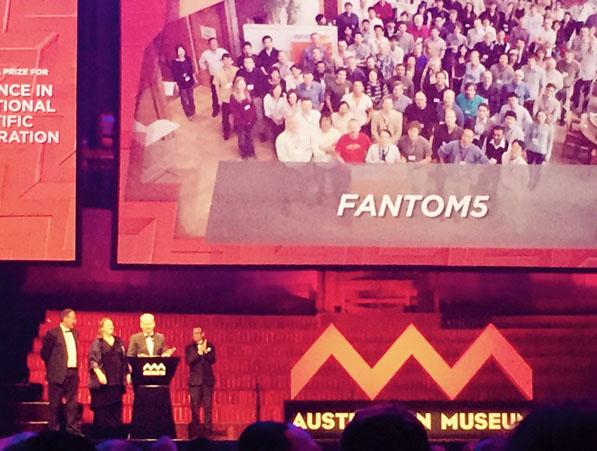Collaborative FANTOM5 project wins Eureka16 Prize
Scientists at The Roslin Institute are among the 260 international researchers from 20 countries working on this project to identify the control mechanisms and functions of the genes that are expressed in each of our cell types.

Presented annually by the Australian Museum, the Eureka Prizes reward excellence in the fields of research & innovation, leadership, science communication and school science. FANTOM5 was awarded the Scopus Excellence in International Scientific Collaboration Prize.
Since its launch in 2000, the FANTOM (Functional ANnoTation Of the Mammalian genome) consortium has been systematically analysing the expression of genes in all mammalian (mainly mouse and human) cells and tissues to understand the regulation of transcription across all cell types.
Using a highly sensitive technique called Cap Analysis of Gene Expression (CAGE), FANTOM5 has revealed 180,000 promoters and 44,000 enhancers across 180 primary human cell types, alongside parallel studies in mice and other organisms. The main findings were published Nature and Science in 2014/2015.
Understanding the cell-type and cell-state specific regulation of transcription will greatly aid the identification of genes involved in disease and the development of personalized and regenerative medicine.
“This work was strongly supported by multiple groups from The Roslin Institute. Our analysis of the data is still ongoing, and we are extending the approaches to livestock genomes. It has been a privilege to work with so many friends and colleagues around the globe and contribute to the generation of such valuable, freely available data” says David Hume, Director of The Roslin Institute and leading member of the FANTOM consortium since its inception.


